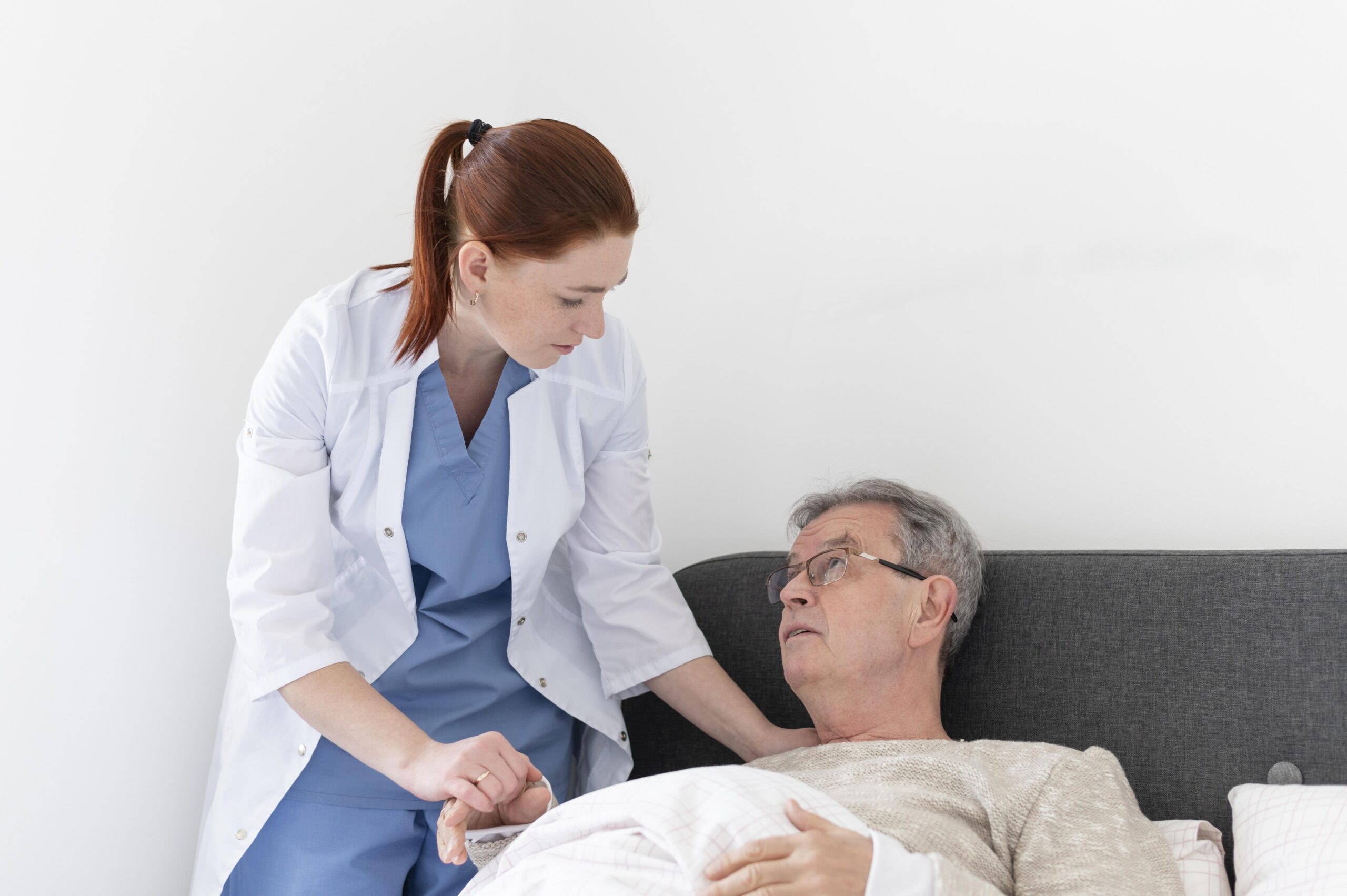Flexible Sigmoidoscopy in San Antonio, TX
What is a flexible sigmoidoscopy?
A flexible sigmoidoscopy is an endoscopic procedure during which a long, thin, flexible pipe, or “scope,” is placed into the rectum and then guided throughout the lower third of the large intestine. For this reason, the procedure has some limitations in that not all of the colon will be viewed. The scope is equipped with a camera and a light at its end which allows the provider to examine the colon’s lining. A sigmoidoscopy can be performed to:
- Diagnose the root cause of GI symptoms such as:
- Bleeding from the rectum
- Diarrhea
- Unusual x-ray outcomes
- Abdominal pain
- As a screening tool for colon cancer and polyps.
Our experienced providers routinely conduct flexible sigmoidoscopies for San Antonio, TX patients. If you are dealing with any worrisome symptoms concerning your GI tract like those listed above, then contact your local San Antonio Gastroenterology Associates to receive help in deciding if a flexible sigmoidoscopy could be a beneficial test for you.

What can I expect the day before my flexible sigmoidoscopy?
FibroScan testing may be recommended for individuals who are in the early stages of progressive liver disease or other conditions. These might involve:
- Hemochromatosis
- Insulin resistance syndrome (syndrome X)
- Nonalcoholic steatohepatitis (NASH)
- Specific types of hepatitis
- Primary biliary cholangitis (PBC)
- Alcoholic fatty liver disease (FLD)
- Cirrhosis of the liver (extreme scarring)
- Different types of chronic liver disease (CLD)
What should I expect on the day of my flexible sigmoidoscopy?
Plan to arrive at the endoscopy center 1 – 1.5 hours ahead of your flexible sigmoidoscopy procedure. This is to ensure time to complete all forms and get prepared for the exam. You’ll be asked to wear a hospital gown. Typically, no IV will be started since, in most cases, sedation is not given with this test. You may be connected to technology that will allow the staff and provider to watch your oxygen levels, heart rate, electrocardiogram, pulse, breathing, and blood pressure during and after the procedure.
Once in the exam room, you will be told to lie down on your left side on the exam table. The gastroenterologist will perform an exam of your rectum. The sigmoidoscope will then be gently placed into the rectum. The scope will then be carefully advanced through the sigmoid colon. A small amount of air is inserted through the scope into the colon to help the provider see. Any fluid still in the colon following the preparation can be washed and suctioned out via the scope. Depending on the findings of the test, several things can be taken care of at the time of the exam including biopsies, removal of polyps, and control of bleeding. After the procedure, all possible remaining fluid and air are removed from the colon via the scope. Depending on the results, the exam takes approximately 5 – 15 minutes to conduct.
Since anesthesia is not generally used, after the procedure is complete the patient is asked to put their clothes back on and is released from the endoscopy unit. Assuming sedation is not required, you’ll be allowed to perform your normal activities as well as drive. The majority of individuals are ready to eat and drink normally following their discharge from the endoscopy unit, however, specific directions regarding eating, medication, and activities will be provided to you before discharge. After the exam, the nurse and/or digestive health specialist will review the findings of the procedure with you. You will also go home with a typed report. The patient will be informed of any results from biopsies within one week.
Are there risks with a flexible sigmoidoscopy?
By and large, a sigmoidoscopy is an extremely safe procedure with complications occurring in less than 1% of cases. Typically, complications are minor, however, should a complication occur, it may require surgery and/or hospitalization. Before the exam, a consent form will be discussed with the patient by the nursing staff. If you have any questions or concerns, these can be brought up and explained by your specialist ahead of the procedure.
Bleeding might occur with biopsies and the removal of polyps. To reiterate, significant bleeding which could necessitate a blood transfusion or hospitalization is extremely uncommon. However, bleeding can occur during the test or up to two weeks post-procedure if a polyp is excised.
A puncture or perforation of the large intestine may take place. This may be noticed during the exam, or it might not be obvious until later in the day. Generally, a perforation will necessitate hospitalization and surgery. This is an unusual complication, even when polyps are excised. The patient must contact the specialist’s office right away if symptoms arise after the exam such as worsening abdominal pain, fever, or bleeding.
As with any other exam, a sigmoidoscopy is not perfect. There remains a slight, acknowledged risk that tissue abnormalities including cancer and polyps can be missed during the exam. It is imperative to continue to maintain check-ups with your providers as instructed and make them aware of any new or recurring symptoms. Please consult with your San Antonio Gastroenterology Associates provider if you have any concerns or questions.
What are the alternatives to a flexible sigmoidoscopy?
To a large degree, any alternatives to the exam will be dependent upon the reason for needing to undergo the sigmoidoscopy to start with. Various x-rays can look at the colon, including a barium enema or virtual CT scan. These tests are, however, diagnostic exams only. Treatment of any detected abnormalities will necessitate a sigmoidoscopy, colonoscopy, or surgery. To hear more about flexible sigmoidoscopy in San Antonio, TX or to discuss your options for treating and diagnosing your condition, we urge you to connect with one of our knowledgeable gastroenterology providers near you.
Flexible Sigmoidoscopy FAQs
How accurate is flexible sigmoidoscopy in detecting colon problems?
Flexible sigmoidoscopy is a useful procedure for diagnosing issues in the lower part of the colon, including polyps, cancers, and inflammatory bowel disease. However, because it only examines the sigmoid colon and rectum, it may not detect problems in the upper part of the colon. For a comprehensive examination of the entire colon, a colonoscopy may be recommended.
How often should I have a flexible sigmoidoscopy for colon cancer screening?
The frequency of flexible sigmoidoscopy for colon cancer screening can depend on individual risk factors such as age, family history of colon cancer, and personal health history. For individuals at average risk, a flexible sigmoidoscopy is typically recommended every 5 – 10 years, starting at age 45. However, your doctor will offer personalized recommendations tailored to your specific circumstances.
What should I do if I experience symptoms after a flexible sigmoidoscopy?
After a flexible sigmoidoscopy, it’s normal to experience mild symptoms like bloating or gas. However, if you encounter more severe symptoms such as persistent pain, heavy bleeding, or fever, you should contact your healthcare provider right away. These could signal complications such as perforation or severe irritation and require prompt medical attention.
